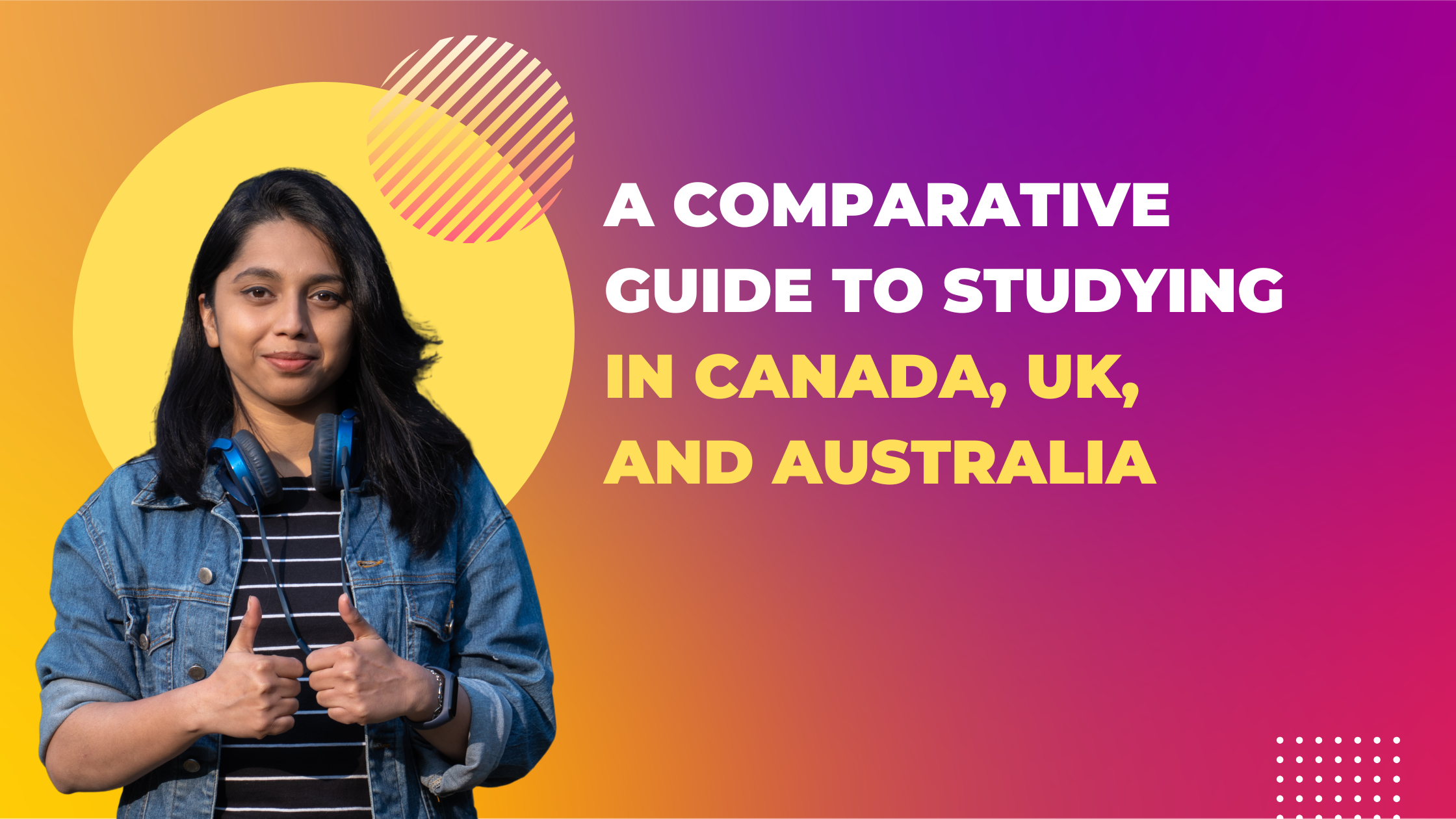Choosing Your Academic Adventure: A Comparative Guide to Studying in Canada, UK, and Australia
1. Introduction to International Study Opportunities
1.1. Benefits of studying abroad
Studying abroad is an exciting journey that offers more than just academic growth. It’s a chance to immerse yourself in new cultures, make lifelong friends from around the world, and develop independence. You’ll gain a global perspective that can’t be learned from textbooks alone.
1.2. Overview of Canada, UK, and Australia as study destinations
Canada, the UK, and Australia are top choices for international students. Each country offers a unique blend of high-quality education, diverse cultures, and stunning landscapes. Let’s take a quick look:
- Canada: Known for its friendly people and beautiful nature
- UK: Rich in history and home to some of the world’s oldest universities
- Australia: Offers a laid-back lifestyle and unique wildlife
1.3. Factors to consider when choosing a country for higher education
Picking the right country isn’t just about academics. You’ll want to think about:
- Climate preferences
- Cultural fit
- Career goals
- Budget constraints
- Language requirements
2. Educational Systems and Academic Quality
2.1. Structure of higher education in each country
Each country has its own approach to higher education:
- Canada: 4-year bachelor’s degrees, emphasis on practical skills
- UK: 3-year bachelor’s degrees, focus on independent study
- Australia: 3-year bachelor’s degrees, balanced approach to theory and practice
2.2. Renowned universities and their global rankings
Here’s a quick comparison of top universities in each country:
| Country | University | QS World Ranking 2023 |
| Canada | University of Toronto | 34 |
| UK | University of Oxford | 4 |
| Australia | University of Melbourne | 33 |
2.3. Areas of academic excellence and specialization
Each country shines in different fields:
- Canada: Engineering, Computer Science, Environmental Studies
- UK: Literature, History, Business
- Australia: Marine Biology, Environmental Science, Tourism
3. Admission Requirements and Application Process
3.1. Academic prerequisites and language proficiency
Generally, you’ll need:
- High school diploma or equivalent
- Proof of English proficiency (IELTS or TOEFL scores)
- Specific subject prerequisites for your chosen course
3.2. Visa application procedures
Visa processes vary, but typically involve:
- Proof of acceptance from a recognized institution
- Evidence of sufficient funds
- Health insurance
- Police clearance certificate
3.3. Scholarships and financial aid options
Many universities offer scholarships for international students. Government scholarships are also available:
- Canada: Vanier Canada Graduate Scholarships
- UK: Chevening Scholarships
- Australia: Australia Awards Scholarships
4. Cost of Education and Living Expenses
4.1. Tuition fees comparison
Average annual tuition fees for international students (in USD):
- Canada: $20,000 – $30,000
- UK: $17,000 – $25,000
- Australia: $20,000 – $35,000
4.2. Accommodation and daily living costs
Monthly living expenses (excluding rent) in major cities:
- Toronto (Canada): $800 – $1,000
- London (UK): $900 – $1,200
- Sydney (Australia): $900 – $1,100
4.3. Part-time work opportunities for international students
All three countries allow international students to work part-time:
- Canada: Up to 20 hours per week during term, full-time during breaks
- UK: Up to 20 hours per week during term, full-time during breaks
- Australia: Up to 40 hours per fortnight during term, unlimited during breaks
5. Student Life and Cultural Experience
5.1. Campus facilities and extracurricular activities
Universities in all three countries offer:
- Modern libraries and research facilities
- Sports centers and gyms
- Student clubs and societies
- Career services
5.2. Diversity and inclusivity on campus
All three countries pride themselves on their multicultural campuses:
- Canada: Over 500,000 international students from 200+ countries
- UK: 485,645 international students in 2018/19
- Australia: 758,154 international students in 2019
5.3. Local customs and social norms
- Canada: Known for politeness and apologizing often
- UK: Queueing is an art form, and small talk often revolves around the weather
- Australia: Casual approach to life, “no worries” attitude
6. Post-Graduation Prospects
6.1. Career opportunities in each country
All three countries offer good job prospects in various sectors:
- Canada: Tech, healthcare, and natural resources
- UK: Finance, creative industries, and technology
- Australia: Mining, healthcare, and tourism
6.2. Post-study work visas and immigration policies
- Canada: Post-Graduation Work Permit for up to 3 years
- UK: Graduate Route visa for 2 years (3 years for PhD graduates)
- Australia: Temporary Graduate visa (subclass 485) for 2-4 years
6.3. Alumni networks and global recognition of degrees
Degrees from these countries are globally recognized. Many universities have active alumni networks worldwide, helping graduates connect and find opportunities.
7. Healthcare and Safety
7.1. Student health insurance options
- Canada: Provincial health coverage in some provinces, private insurance in others
- UK: National Health Service (NHS) coverage for courses longer than 6 months
- Australia: Overseas Student Health Cover (OSHC) is mandatory
7.2. Access to medical facilities
All three countries have excellent healthcare systems with easy access to medical facilities.
7.3. Campus security and overall safety in each country
These countries are generally safe, with low crime rates. Universities have their own security measures to ensure student safety.
8. Summary: Making Your Decision
Choosing between Canada, the UK, and Australia isn’t easy. Each offers unique experiences and opportunities. Consider your personal goals, budget, and preferences. Remember, there’s no “perfect” choice – each country can provide an amazing study abroad experience.
9. Frequently Asked Questions (FAQs)
- Which country is the cheapest to study in?
Generally, Canada tends to have slightly lower overall costs.
- Can I stay and work after graduating?
Yes, all three countries offer post-study work visas.
- Do I need to know French to study in Canada?
Not necessarily. Many programs are taught entirely in English.
- Is it difficult to get a student visa?
The process can be complex, but if you meet all requirements, you should be able to obtain a visa.
- Can I travel to other countries while studying?
Yes, but check visa requirements for other countries you wish to visit.







